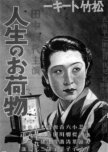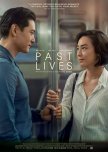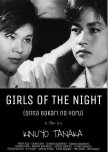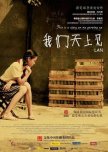
Nothing goes to waist in this short film!
I started this short film trepidatiously due to the title---My Wife Got Fat. Too often fat shaming is condoned and can be cruel and demoralizing. Thankfully, there was no judging or taunting here.When a wife wakes up to find she’s gained 2.2 kg/ 5 lbs she becomes frustrated that she’s gotten “fat.” Her husband doesn’t say much but begins to observe her. What he discovers touches him and he makes a plan.
Jang Young Nam played the anxious and loving wife and mother. It was hard for me to think of this slender woman as “fat.” I kept hoping her husband and sons would tell her how beautiful she was and to not be discouraged. Kim Tae Hoon brought a tenderness and understanding to the husband. Kim Joon as the youngest son is one of the most adorable child actors around. Fortunately, Ahn Ji Ho’s teenager wasn’t awful like so many teens are shown as being and was also enlisted to help the mom out. Throw in a cute dog and this family was about as perfect as they get. The resolution made the husband even more endearing.
With all of the dysfunctional families in Kdramas it was a joy to see a loving, supportive family. Though not even in my dreams could I aspire to be as “fat” as this thin mother. The mom was beautiful, active, and cared for her family and never should have felt less than. Apparently, not only beauty, but fat is in the eyes of the beholder. Thankfully, the beholder in this film saw his wife through the eyes of love.
21 November 2024
Esta resenha foi útil para você?

"Women are like products for sale"
Burden of Life was a short Gosho Heinosuke film from 1935. Not going to sugar coat this one. I hated it. Even taking into account the time period, it was so overtly sexist that it made my blood boil.There might be a couple of elements below that could be considered spoilery:
The film starts out safely enough (sort of) with a playful bantering of the sexes. Itsuko is the middle sister married to an artist who paints semi-nude portraits of her. They live beyond their means and rely on her parents helping them out with money. Oldest daughter Takako is married to Tetsuo and are always fighting. He disapproves of her buying anything for herself, yet he spends his time in hostess bars drinking and buying drinks for the hostesses. Machiko, the youngest daughter, is about to be married which is costing her dad more money. Nine-year-old Kanichi is the baby of the family. He stays away from his dad as much as possible, even eating dinner in the kitchen to avoid him. Shozo has nothing good to say about the boy. His mantra is, “We never should have had him.” Finally, the mother has had enough and begs the father to be kinder to him and plan for the son’s future as well.
I’ve watched numerous older films, but the gaslighting of the mom to prove that the father knew best and women were overly emotional was too much for me. There appeared to be a tiny softening of Shozo near the end but it was not nearly enough for me to accept any real character growth. I found the father’s attitude deeply disturbing. Shozo didn’t know Kanichi’s age and had no plans for the boy to be educated. He considered the boy too short and too ugly to ever be married. Surprisingly, this was one of the first times I’ve come across a father wanting to be rid of a son. Daughters were often lambasted as being useless, but sons always seemed to be coveted. Shozo’s domineering attitude toward his wife had me hoping she’d smother him with her pillow while he slept. He kept saying he wished Kanichi had never been born, being as brilliant as he was, surely he knew how babies were made, didn’t he?
Despite the age of the film and knowing attitudes have changed in the last nearly 100 years, I could not enjoy this film at all. Other early directors had a modicum of respect for their female characters and audience. A child being continually rejected by his father destroyed any enjoyment I might have had with this film otherwise. If you are a fan of Gosho or can tolerate bad parenting and dismissive attitudes for women, at 67 minutes it’s worth a try. I gave myself a day to think about it and try to rationalize the father/husband’s behaviors and the neighbors’ but am still mad. Given this was supposed to be a lighthearted slice of life, I don’t think that’s the response Gosho was trying to elicit.
17 November 2024
Esta resenha foi útil para você?

Homage to Jimmy Wang Yu's One-Armed Swordsman
Wu Xia aka Dragon was a nice homage to The One-Armed Swordsman, even casting Jimmy Wang Yu as the Big Bad. My review is based on the shorter international version which was thankfully subbed and not dubbed but was still almost 20 minutes shorter than the original version.Liu Ji Xi makes a living making paper and lives with his wife, stepson, and young son. Their lives are quiet and idyllic until one day two notorious criminals who have escaped custody break into a shop and brutalize the older couple who own it. Ji Xi clumsily stumbles in and intervenes. Afterward when the village is celebrating Ji Xi’s heroic acts, Detective Xu Bai Ju arrives. He believes that there may have been more than luck involved when the simple papermaker defeated too skilled killers. His suspicions are confirmed when the 72 Demons Gang attacks the town in search of Ji Xi.
Donnie Yen played the papermaker with a mysterious past giving the kind of performance you’d expect from him. He also choreographed the fights which meant they were entertaining to watch. Tang Wei played his wife, Ah Yu. Sadly, she didn’t have much to do in this film. Ji Xi’s bespectacled antagonist was the investigator played by Kaneshiro Takeshi who had his own murky past. I suspect some of the edits came at the cost of Kaneshiro’s character as there was more to him hinted at than what I saw. I would like to think Tang Wei’s time was also cut because in the 97-minute version she was criminally underused. Jimmy Wang Yu played the nefarious Master of the 72 Demons gang who was a formidable martial artist. I was never a fan of Jimmy’s old kung fu flicks, even blasphemously the original One-Armed Swordsman. To my relief, he gave a more nuanced, if menacing, performance here. Kara Hui (My Young Auntie!!) bounded in as one of the Demons and at 51 years of age held her own with Donnie in their choreographed fights.
Dragon had superb fights, two male leads with painful pasts trying to make the best of their lives, and a thriller element when the 72 Demons came to town with swords drawn. The film called into question whether there was room for empathy in enforcing the law. Dragon might not have broken any new ground, but it was stylishly filmed and well-acted. Not a bad way to spend an hour and a half.
7 November 2024
Trigger warnings: Body parts went flying in three different scenes as well as a tooth
Esta resenha foi útil para você?

Revenge of the insects!
Genocide was a dark film with a very bleak opinion of humanity. Director Nihonmatsu Kazui threw a lifetime of grievances against the screen to see what would stick-nuclear war, environmental concerns, concentration camps, PTSD, racism (whether intentional or not), sexism (whether intentional or not), murderous insects that could communicate, and the Cold War. That was a lot to tackle in 86 minutes.Joji collects insects on an uninhabited island with Annabelle both for her own study and for his friend, Dr. Nagumo in Tokyo. When Joji and Annabelle are “relaxing” they see a plane catch fire with four parachutes dropping out. Later, two American crew members are found dead and one unconscious. Because Joji tried to sell a watch he found that belonged to a crew member he is arrested for murder. Colonel Gordon wants him to pay for their deaths but he is far more concerned about a missing nuclear bomb. Soviet spies are scouring the islands attempting to find it as well. To complicate matters, killer bees are on the loose bent on destroying humanity. Joji, his wife Yukari, and Dr. Nagumo become hopelessly entangled with a vengeful scientist, predatory insects, and two super powers.
There really was a lot to unpack with this film. Charlie, the black crew member, suffered casual and overt racism from just about everybody. He’d suffered severe PTSD from the war and had become addicted to drugs which caused everyone to treat him even worse. Yukari was sexually assaulted twice and the female doctor once with very little afterthought. The vengeful scientist was a survivor of the notorious Auschwitz concentration camp and had it in for humanity. “I love insects because they never lie.” The American colonel seemed to be a rogue commander willing to start a nuclear war and kill thousands of people to cover up his mistake. The Russians were using the deadly bee research for biological weapons and desperately wanted to get their hands on the bomb. As people showed their ruthlessness and/or utter stupidity on a regular basis, I began to root for the bees.
The actors performed well, something of a rarity for cheap horror flicks. There were several non-Japanese actors who were dubbed in Japanese. I don’t know who wrangled the bee actors but I hope they were paid handsomely. My biggest complaint was in the editing. There were times that people disappeared and ended up somewhere else without explanation. If you have a problem with insects, this film has numerous buggy scenes. I had to turn my head when bodies were infested with creepy crawlies or being chewed on. The science and logic for the film was genuinely lacking. It stretched credulity when a USAF officer believed that detonating a nuclear bomb was a smaller offense than going to the trouble to retrieve it. It's not like someone could have stuffed a multi-ton bomb into a backpack and carried it off the wooded island. Despite gruesome infested wounds, no one would believe the scientists that the insects had turned against humans. Un-bee-lievable.
Genocide was unflinching in its nihilistic view of the world and humans’ place in it right to the bitter end. Nihonmatsu took a stand and didn’t deviate from it. The insects let people know, “The Earth doesn’t belong to humans alone. We don’t care if mankind destroys itself with nuclear weapons, but we refuse to let you take us with you!”
29 October 2024
Trigger warning: Numerous insect scenes in a variety of manner and stages
(Rated on a curve for old, low budget, niche films)
Esta resenha foi útil para você?

"You think you can attain real power through ideas alone?"
Uprising explored the plight of slaves and peasants around 1589 during a tumultuous time in Joseon history. It was also action packed with revolts and a Japanese invasion. All while the king waxed on about the insignificance of his tax and work base.Cheon Yeong has been a slave due to a legal and moral loophole ever since he was a child. He has reluctantly served the underachieving young master, Yi Jong Ryeo. Through the years they became fast friends until a broken promise and a misunderstanding set them on divergent paths as the Japanese began marching across the country.
The first thing I had to do was age the two main characters upward. When a flashback was labeled “Twelve years ago,” all I could think was that the two young boys did not look 30 years old. This trope of brothers or sworn brothers turned mortal enemies due to a misunderstanding has been done many times before. Poor Cheon didn’t even know there was a problem for seven years. He had his hands full fighting the Japanese with a ragtag assortment of peasants and slaves abandoned by the nobility. Yi served the king who had fled during the crisis. No one really cared what happened to the little people who were often killed or left homeless. Even when the king learned of the small band’s heroic results, he was more interested in how he was going to get a strong enough workforce and money to build a more splendid palace. Apparently, nobility had nothing to do with nobleness and keeping one’s word or administering true justice.
While the story was nothing new, the fights were well choreographed and gruesomely realistic. Swords are sharp and used with great force which meant body parts tended to go flying. Cheon was very disarming with a sword. Though it was the corrupt officials who caused righteous people to lose their heads. The director might have taken a little too much delight in mangled bodies. Kang Dong Won gave a strong performance as the dangerous and shrewd slave, though Cheon naively believed the duplicitous nobility too many times. I didn’t find Yi Jong Ryeo a very sympathetic or interesting character nor very nuanced. I enjoyed Kim Shin Rok’s Beom Dong who had a better insight into the ways of the nobility and a lot of moxie. She also wielded a mean staff.
Uprising kept a good pace throughout though it ran a bit long for me. The historical backdrop was far too complex to wedge into 120 minutes which made it feel like the story fast-forwarded over numerous subplots. The tragic showdown between Cheon and Yi was inevitable but a letdown. Honestly, I was more invested in the confrontations between Cheon “The Blue Robed God” and the “Nose Snatcher” Japanese commander Genshin Kikkawa. The animosity and fighting respect between the two warriors was compelling and thrilling. Going into the movie and knowing slavery continued for 300 more years after the events portrayed here only led to the feeling of pathos for many of the lives sacrificed. Despite some of my reservations, Uprising was an entertaining film and worth trying if you enjoy this genre.
22 October 2024
Trigger warnings: Numerous decapitations and dismemberments-many, many body parts flung around
Esta resenha foi útil para você?

"It was no dream"
Kwaidan is a 1964 film that contained four unrelated ghost stories. The film drew most of its material from Lafcadio Hearn’s 1904 book called Kwaidan: Stories and Studies of Strange Things. Director Kobayashi Masaki crafted each stylized story much like a painting. The skies were often brightly painted backgrounds with each vignette taking place primarily on a soundstage. These were not terrifying or gory tales, more like eerie, karmic, Twilight Zone episodes.1) The Black Hair/Kurokami (B)
An impoverished ronin discovers what goes around comes around aka payback is a bitch when he leaves his loving wife to marry up and take a new position.
2) The Woman of the Snow/Yuki Onna (B+)
A young woodcutter is spared by a snow witch on the grounds that he never tell anyone he saw her. He learns the lesson to never betray a woman.
3) Hoichi the Earless/Miminashi Hoichi no Hanashi (B)
Blind, kind, Hoichi is a young monk at a temple not far from where an epic battle took place 700 years before. The ghostly Heike clan calls upon him to sing the tales of their failed battle night after night. He pays a painful price for his freedom.
4) In a Cup of Tea/Chawan no Naka (B-)
Can you swallow someone’s soul when drinking a cup of tea? A writer receives a proper punishment for writing an open ending to his story.
I enjoyed the stylized view of each of the stories with most having a stage production look and feel. They often appeared surreal, especially Yuki Onna’s swirling eyes in the sky. Each varied in length with Hoichi the Earless being the longest (maybe too long) and In a Cup of Tea being the shortest (maybe not long enough).
The cast for each story was strong. Nakadai Tatsuya played the naïve woodcutter and Kishi Keiko played the complicated Yuki in Yuki Onna. I love his wild eyes though he was the babe in the woods in this segment. Shimura Takashi as a Buddhist priest tried to help the blind Hoichi who was bound to his ghostly visitors each night. Too bad his character didn’t have a strict attention to detail.
Each of the four stories took a different approach to the supernatural though all of the main human characters paid a price for their encounters. Kwaidan had strong performances, taut stories, and a mesmerizing artistic appeal to it. There was an almost poetic rhythm to the moralistic storytelling. While these were technically horror stories, they were the type you could see people telling around a campfire, preferably with any powerful talisman available hanging around their neck.
3 October 2024
Esta resenha foi útil para você?

What I Liked:
--Vengo Gao-He was tailor made for the role of a suave, badass vampire.
--Gothic vibes-the dark exteriors and interiors were perfect for this story.
--Costumes-I loved all the velvet, especially Jing Xue’s wardrobe.
--Eternally winter-a great vampire setting. You never see vampires sipping Mai Thais on the beach. The Snowpiercer train ride through the frozen landscape also felt other-worldly.
--Ever present Snowman- I had hoped Frosty would have transformed into a snow monster but we can't have everything.
--Gold Crow-I’m a fan of the Corvus genus of birds though this avian actor was forgotten about much of the time.
--Non-romantic relationship for most of the drama-Based on Mi Lan’s childlike personality, there was definitely a maturity gap and vastly unequal power structure between her and Zhi Heng. Lovers don’t usually tell the other to “drink your milk.”
Neutral:
--CGI-Not great, but not a deal breaker for me
--Ending-spoilery comments after review
--The writers couldn’t use the word “vampire” or show them drinking blood but angry, biting, hair-pulling sex was all right. Mmmm…kay
What I didn’t like
--Zhi Heng written to be utterly stupid and inept in the opening salvo. This brutal scene had him acting completely out of character. They needed a set-up for him and Mi Lan to meet and to show his mostly indestructibleness but man it made him look less than powerful or intelligent.
--Anything that hinted at a romantic relationship. I don’t mind age gaps, but this was a maturity gap. Mi Lan was treated like a 12-year-old and acted like one for much of the drama.
--Terrible wigs-some of the wigs looked like roadkill.
--Both Liang and Situ weren’t written consistently and could give you whiplash with their back-and-forth emotions
--Liang’s plot armor-Zhi Heng could take on a jillion Shadow Warriors but somehow Liang always slipped through his fingers. Although he was always being beaten, shot, etc. Characters would also go into hiding and then come back into the open with no consequences.
--The magical stones element felt ill developed and clunky. Another demerit for censorship-it plays havoc with creativity.
--Wei Lian’s creepy walk on the dark side with Jing Xue
In conclusion:
❄Overall, I enjoyed this drama. It was a nice attempt at the vampire genre given all the restrictions and had a luxurious look. The costumes and settings may have been Republican Era but the drama felt more like a magical storybook which I quite liked. Far from perfect, yet also strangely addictive, Snowfall made for an interesting if fractured fairytale.❄
30 September 2024
Short spoiler below
*********
*********
*********
*********
*********
I didn’t mind the SE. It had been foreshadowed from the beginning. Since I didn’t care for any romance between the two main characters, I didn’t need the HE. The only thing I didn’t care for was the apparent deviation from the source material. Of the Republican Era and strictly historical dramas I’ve watched, the censors seem to prefer sad endings so I know going into these dramas the likelihood of the main couple living HEA is a low percentage. At least it didn’t come out of the blue and the story was headed in that direction from the beginning unlike other dramas where a disappointing ending is tacked on.
Esta resenha foi útil para você?

"If you search, fate grows. If you give up, fate dies"
In 2015 it was estimated 20,000 children in China had been stolen and trafficked just for that year. Some were sold for adoption, others for forced labor or prostitution. Lost and Love told the story based on a real-life father who had spent 15 years chasing down leads and searching for his child all over China. Andy Lau gave one of his best performances as the determined father who would never stop in his quest to be reunited with his son.Lei Ze Kuan rides his motorcycle with flags displaying missing children’s faces as he chases down leads on his missing son. After a road accident he meets Zeng Shuai when the young man fixes his bike. It turns out that Shuai was a kidnapped child and “adopted” by the family he lives with. The family has been good to him, but because of his unknown status he cannot go to university, marry, ride the train, or any other thing which requires an id card. He asks Lei to take a side trip and go with him to check on clues as to where his family might be. The two men bond during their road trip seeking the truth they both desperately want.
I’ve watched many films with Andy Lau, but Lost and Love is the first one where I wasn’t constantly reminded by his acting that he was “Andy Lau.” He gave a vulnerable performance as a father who was ridden with guilt and anguished over his loss. This understated interpretation was quite moving. Jing Bo Ran also gave a realistic performance as a lost son torn between wanting to find his biological parents and not wanting to betray his adoptive parents. The chemistry between the two quickly evolved into a surrogate family as they traversed the country. As they grew closer there were several tender and playful moments between them.
Peng San Yuan based the story on real life father, Guo Gang Tang. She added another missing child whose story with Sandra Ng as a trafficker was woven throughout the film, though it did turn melodramatic. Peng illustrated the complicated feelings and responses parents had who lived through the nightmare of having a child stolen from them. Aside from the guilt and fear, the trauma caused marriages to dissolve, mental health to collapse, and for some parents, the despair drove them to suicide. Peng not only wrote the screenplay but also directed the film. The pacing and transitions kept the film flowing even with three stories being told. The film was visually appealing as Peng highlighted the stunning verdant scenery of the countryside and architectural beauty of old chain bridges.
Lost and Love was heartwarming and heartbreaking and did so without falling into the trap of sentimentality. There were a couple of coincidences that were a bit too on the nose, but I’m a sucker for these stories based on real life events and was able to overlook them. I cannot imagine the terror of not knowing if your child was safe and whether you’d ever see them again. I also cannot imagine having the strength to spend every day for nearly two decades following any hint that might bring me closer to that child and dealing with the soul crushing despair every time a lead did not pan out. Lost and Love brought a horrifically painful subject to light while also showing the supportive networks and people trying to reunite families.
If you’d like to see how the real-life father’s story was resolved, see below.
28 August 2024
*****************************************************************
After TWENTY-FOUR years, Guo was reunited with his son!!!
This link still works as of this writing:
https://www.bbc.com/news/world-asia-china-57815491
Esta resenha foi útil para você?

"If you leave something behind, you gain something, too"
Writer/Director Celine Song brought out the Kdrama tropes in her directorial film debut Past Lives. She took such tropes as childhood connection (destiny!), lovestruck second male lead, and the much-maligned love triangle and used them in fresh ways. The film I was expecting and the film that played out before me were quite different.Na Young and Hae Sung are best buddies at the age of twelve. Then her family emigrates to Canada separating the two children. Twelve years later Na Young, now called Nora, looks up old friends on a lark, including Hae Sung. The two reconnect via computer and begin conversing. Hae Sung wants her to come to Korea for a visit and she wants him to come to New York City where she lives. Feeling at an impasse in her life she goes on a break from Hae Sung. Twelve years later, now at the age of 36, Hae Sung comes to NYC to visit the married Na Young.
I dreaded Nora’s husband, Arthur, being portrayed as the rich, abusive or disinterested white guy standing in the way of the sacred childhood connection. I laughed when Arthur said their situation would make a great story, “I would be the evil white American husband standing in the way of destiny. I’m the guy you leave when your ex-lover comes to take you away.” In reality, Arthur was a loving, generous husband, who was learning Korean to better connect with his wife. He didn’t throw a jealous hissy fit when Hae Sung came to town. He respected Nora enough to let her do what she needed to.
Hae Sung arrived in town, obviously still in love with Na Young. Or was he only in love with the idealized version of her? He hadn’t spent any time with her since she was a child. He still lived with his parents and considered himself too ordinary. Despite working, he hadn’t made enough money to marry and had recently broken up with his longtime girlfriend. It didn’t help that handsome Yoo Teo looked his age (42) and not 36 which further made me wonder about his hesitancy with life choices.
The star of the film was Na Young/Nora. She had always had dreams and goals and was highly competitive. She was a playwright and working out her own destiny. The choices she’d made weren’t easy but she knew where she wanted to go and what she wanted to do. That didn’t mean she was cold and calculating. She’d loved Hae Sung as a child and maybe even as an adult. But she also loved her husband and was funny and affectionate with him. Nora made the choices that were right for her, no excuses, and actually seemed satisfied with her decisions. After making the painful decision to go on the break with Hae Sung she never showed any regret. That didn’t mean she didn’t miss him or Seoul, and maybe more importantly, who she was in Seoul. As an immigrant, she had two selves, and both were authentic and important. Hae Sung helped her remember the little girl from Seoul she’d left behind.
Greta Lee gave a lovely nuanced performance as Na Young/Nora. Without tears and histrionics, she delicately showed her character working through where she wanted to be, who she wanted to be with, and more importantly---who she wanted to be. Joe Magara made Arthur a sympathetic three-dimensional character subtly playing out a variety of emotions. Yoo Teo brought a vulnerability to Hae Sung as a man who had to take one last chance to see his childhood love.
This film was far less a love triangle and more one of Nora’s self-discovery and reconnecting with her past and ethnic identity. Many people have that “what could have been” someone in their life. But often that person is in the perfected past of memory and not the imperfect reality of the present. Past Lives gave us mature, honest adults coming to the realization of what doors needed to be closed, opened, and left slightly ajar.
25 August 2024
*********************spoiler******************
Dude, 24 years? That is why you ended up the second lead. Luck and love favor the bold!
Esta resenha foi útil para você?

"Let go so you will be happy"
Down the River told the melancholic story of first love through the eyes of Krit, an openly gay high school student. This film was Director Nuchy Anucha Boonyawatana’s graduate school effort so I was lenient in my rating and criticism of it. The story was heavy with Buddhist and natural symbolism interwoven with the boys’ decisions about their futures and whether they would be together or apart.Krit is convinced that if he gives offerings and prayers at nine different temples that his wish to be with Win forever will be granted. The two have bonded since childhood and their friendship has crossed over into something more intimate. Win is going to the academy in order to join the military which would end any type of relationship they might have. Win also refuses to believe he is gay despite their friendship blurring lines with being lovers. He has a girlfriend and knows the military and society will not be accepting of him as a gay man. Krit presses flowers and his memories of Win into a book that he keeps with him that becomes a symbol of his love. On the trip to the temple and hike to the Elephant Waterfall, the seventh of the falls, Krit hopes to convince Win to stay, but to his dismay Win invites two girls to go with them. Further dimming Krit’s hopes are the monk at the temple telling him at the beginning of the trip that in order to be happy he has to let go.
Nuchy filmed numerous scenes of water and the woods set to a score that perfectly matched the mood and natural background. Sadly, several scenes were too dark to see much of anything. I don’t know if that was by design, age, or poor equipment. The film was held back between the dark scenes and rudimentary acting. While Krit came across as more fully developed, Win was a bit of an enigma. Despite the more amateur issues, I enjoyed the film especially as the meaning of the title became clear.
Krit reminisced about his relationship with Win in an almost spiritually poetic manner. While the film had a universal theme of first love, it also showed how first love between members of the same sex faced even more hurdles in a time and place where their love wouldn’t be accepted. Sometimes a person can hold onto their first love and other times they have to let it go to the river of time.
12 August 2024
Esta resenha foi útil para você?

"I don't have time to get mad anymore"
Filipina director Mae Cruz Alviar and writer Enrico Santos put their own stamp on the relationship time travel trope. They didn’t break new ground but they did commit to their story and characters in a way that came across as authentic.Mary and John have been married for years and have a son together. Mary still deeply loves John and has built her world around helping him to fly while John has become selfish and angry. John never has time for her or their son, Austin, especially after Austin failed to make the football team. Austin tells his dad that Lodz has been talking with him and that everything is going to work out, his dad just has to figure out what he really wants. John asks who Lodz is and Austin shows him a picture of Jesus. When Mary dies the next day, John has his own meeting with Lodz who has a proposition for the guilt-ridden man.
John had a little over a day to put things right and save Mary. Not really long enough to have a complete personality change and to its credit the film showed John faltering at his first challenge. He was smacked upside his head with what was really of value in his life and how much time he’d wasted thinking only of work and himself. The people around him had suffered and been starved of his affection and attention. Mary was a skilled chef and she wanted to fly. Austin was a gifted pianist ready to fly if given the chance as well. John’s eyes were opened to the love and happiness he’d been shutting out for years and how badly he’d hurt his family.
Few people are given second chances and John learned about redemption, accountability, and regret in a crash course delivered by an electrician to help him see the light. Normally, this is the type of film I’d give a 7.5 to for being a good average movie, but I bumped it up for the commitment the filmmakers showed until the end to not take the easy way out.
11 August 2024
Esta resenha foi útil para você?

Mrs. Nogami, the headmistress of the Shiragiku Dormitory finds Kuniko work as a live-in worker at a shop. No one there knows what Kuniko used to do for a living. Her boss works her from morning until night and after her living allowance is subtracted from her wages Kuniko will only be making 10, 000 yen/68 USD a year. After her past is revealed, the shopkeeper is determined to demean and replace Kuniko. Rather than be humiliated and taken advantage of, Kuniko takes the situation literally into her own hands. At her next job in a factory, Kuniko tries another tactic and reveals her past to the women in the dormitory. Instead of being supportive her female co-workers violated Kuniko in a disturbingly violent scene. At her third job she finds love, but also runs into the limitations of societal forgiveness and acceptance.
Girls of the Night was one of the few films from this time that was both directed and written by women. Tanaka Kinuyo filmed a fairly progressive film given the timing of the new law. Far from condemning the ex-prostitutes, the film tried to show that the majority of the women sold their bodies due to tragic situations pressuring them from society, family, or personal relationships. Mrs. Nogami time and again supported Kuniko and the other women in her care. When Kuniko asked why it had been okay for her to use her body as she wished before and now it was illegal, Mrs. Nogami had no good answer for her. Girls of the Night also had a lesbian character in a small supporting role, the first I’ve run across in this era. Whether due to the source material or concerns of how the audience would receive the film, they did hedge their bets by having Kuniko be harshly critical of her own past actions and decisions.
The pure and polite society Kuniko interacted with might not have had to sell their bodies to make a living but they also showed they were far from the moral ideal. Kuniko had more than her share of encounters with vile humans but she also found healing in the people who accepted her. The most important person she had to convince that her past could be forgiven was herself. Tanaka’s 5th film in the director’s chair once again showed Mizoguchi Kenji was wrong and that she was quite smart enough to direct a film.
10 August 2024
Esta resenha foi útil para você?

During the 1960’s at the age of three, Jiang Xiao Lan’s parents were sent to the “countryside”. Her 89-year-old grandfather was left in charge of her. Initially enforcing his authority with a ruler style whacking stick, the neighbors convinced him to use his words instead. At school Xiao Lan was ridiculed and taunted mercilessly as a “bastard of counter revolutionaries.” Grandpa wanted Xiao Lan to have a skill so that when she grew up she would not be sent to “the countryside.” She joined gymnastics but was never accepted and always considered an amateur. Lan missed the parents she scarcely knew. The only connection she had to them were their letters that Grandpa read to her. After a time jump, not much changed for Xiao Lan as she entered adolescence.
Lan was beautifully shot as if each scene was a painting, featuring both photogenic actresses who played Lan. Most of the scenes contained either rain or snow with Lan carrying her ubiquitous umbrella. Lovely music accompanied Xiao Lan’s growth from small child to teenager. Zhu Xu as Grandpa Tang gave a tender performance as the man who cared for and tried to shield Xiao Lan from the harsh realities of her life. Yao Jun and Zhu Yinuo seamlessly portrayed the melancholy Xiao Lan who desperately wanted to fit in somewhere and longed for her missing parents. Director Jiang created several whimsical scenes such as Xiao Lan flying across the Huai River with her umbrella to the north to find her parents. There were also several references to missing teeth, the meaning of which eluded me.
Jiang Wen Li composed a touching film showing the consequences of the cultural revolution on families. The relationship between Grandpa Tang and Xiao Lan came across as loving and realistic. While it was beautiful to look at it, I kept waiting for some sort of emotional climax which never came. I enjoyed Lan and maybe on a different day would have rated this graceful film higher.
9 August 2024
(7.75)
Esta resenha foi útil para você?

Still Human. Still Dreaming.
Still Human is the kind of heartwarming, healing film that is like catnip to me. I’ve seen this paradigm before of the Filipina maid changing hearts and breaking down barriers, but Anthony Wong and Crisel Consunji put their own stamp on it.Cheong Wing has been confined to a wheelchair ever since a construction accident. His wife divorced him and is now remarried. His son is in the States studying to be a doctor leaving Cheong Wing alone in his miniscule public assisted housing. With his closed off persona believing himself to be “rubbish” and having special needs he hasn’t been able to keep a maid. In walks Evelyn Santos from the Philippines. She speaks no Cantonese and he only speaks a little English, at first glance it does not seem like a match made in heaven as he confiscates her passport. Other Filipinas in Hong Kong tell her to play dumb and never let him know if she learns Cantonese or else her workload will be greater. As Evelyn and Cheong Wing come to know each other and see the other as human, healing and growth occur.
This film highlighted the marginalized people in the community. Evelyn and the other maids were on duty 24/6, with only Sundays off. She suffered derogatory comments and treatment almost everywhere. Cheong Wing struggled to keep his head up as he felt like a burden on his family and friends. Director/writer Oliver Chan hammered home the message that despite a person’s circumstances, as long as they were breathing, a person could have dreams. Everyone needs a purpose, a dream, something for them to reach for in life to give their experience meaning. It didn't matter if the person was old, handicapped, poor, or an other. The two characters broke down those barriers to otherness with respect and compassion.
Oliver Chan made this charming film for around 3.25 HKD/415,000USD. Anthony Wong was said to have forgone a salary. With or without pay he gave a complex performance of a man, father, friend without a reason to live only to be given another chance at meaning in his life. For the most part, Crisel Consunji held her own with Wong as the goodhearted Evelyn with a delightfully wicked sense of humor. “Sir, you even learn Japanese” as Cheong Wing attempted to hide his Japanese porn.
Still Human. Still Dreaming. If you are in need of an uplifting film to remind you that we are all neighbors, all family on this beautiful blue marble, that no one is less than, Still Human is just the ticket.
31 July 2024
Esta resenha foi útil para você?

Invitation or Cancellation?
While researching films directed by women, I found this appealing short film by Jang Yi Je. I tried to discover more about the people involved with the making of this film, but this obscure short was lost in the vast space of Pluto titled films and shows. I suppose the numerous Pluto named entertainments could offer solace to the poor bullied planet that was kicked off the starting team of planets in our solar system. #justiceforpluto! But I digress…Yeon Woo is getting married soon, but has one person she needs to see first. She visits the best friend of her childhood, the person she can’t forget. Se Jeong has a pottery studio and is less than thrilled when the familiar face drops by after too many years apart.
Pluto teased a more complex story of familial and societal expectations and judgements. As happens so often in these stories, one person gracefully accepted who she was and the other bowed to the pressure to fit in and be “normal.” How far was Yeon Woo willing to go to please others? Small hints piqued my curiosity. Based on one comment I wondered how controlling was Yeon’s boyfriend. Se Jeong had hated the pottery studio as a child and now creates works of art. I would like to have known her backstory as well. My biggest complaint other than the blown-out photography was because it was a pottery studio, the film succumbed to the overly used Ghost trope.
These short films can be maddening when they seem to have enough material for a full-length film. In a mere twenty minutes, I began to feel invested in these two women and their stories. Was their love deep enough to forgive the past and courageous enough to walk hand-in-hand into the future?
1 August 2024
Esta resenha foi útil para você?

 55
55 202
202 11
11






















